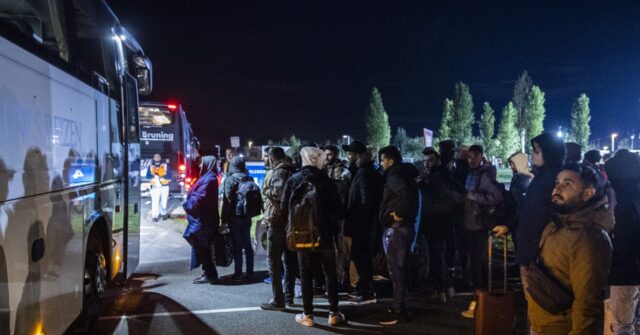The Dutch government, led by Geert Wilders, is considering imposing a hard limit on the nation’s population as part of its broader strategy to control mass migration. This comes in the wake of a report from the State Committee on Demographic Developments, which suggests that The Netherlands should impose immigration restrictions to prevent the population from exceeding 20 million by 2050. Currently, the population stands at approximately 18 million. According to estimates, the government would need to limit immigration, including asylum seekers, to around 68,000 annually to meet this population cap successfully. This initiative reflects the Wilders administration’s commitment to strict immigration policies that were central to their election campaign.
MP Maikel Boon, representing the Party for Freedom (PVV), emphasized the need for a societal framework that prioritizes Dutch citizens above all others. This perspective echoes sentiments similar to those expressed by former U.S. President Donald Trump. Boon challenged the common notion among pro-mass migration advocates that immigration can resolve challenges such as an aging population or labor shortages. Instead, he advocated for a focus on empowering the native population and leveraging technological advancements to address these issues. His stance is grounded in research by Dutch mathematician Jan van de Beek, which revealed that a substantial majority—80 percent—of immigrants in The Netherlands are a net drain on government resources.
The financial burden attributed to immigration was a significant point in Boon’s argument, who suggested that the costs incurred from immigration exceed those associated with supporting an aging society. This claim counters arguments that increased immigration is a panacea for economic needs. The political landscape within The Netherlands appears to be shifting, as demonstrated by Frans Timmermans, leader of the GreenLeft–Labour party, who has indicated a potential endorsement for the proposed population cap, despite his party’s historical support for mass migration policies. This development highlights an evolving political consensus around immigration issues, underscoring the growing concerns among the populace.
Boon also highlighted cultural and societal concerns stemming from mass migration, illustrating how the demographics in public spaces—such as shopping streets and healthcare facilities—are rapidly changing. He noted that the prevalence of foreign languages in these settings contributes to a sense of alienation among Dutch citizens, intensifying feelings of being strangers in their neighborhoods and the nation at large. Observations of multi-lingual environments in universities, where courses are increasingly taught in English, reinforce his argument about the diminishing prominence of the Dutch language and culture due to immigration.
Moreover, the long-standing concerns of the Dutch public about mass migration, which had previously been marginalized in political discussions, have gained traction following the electoral success of Wilders and the PVV. This shift evidences a broader societal awakening regarding the ramifications of unchecked immigration. In addition to proposing a population cap, the Wilders-led government has already enacted several legislative measures aimed at curtailing mass migration, such as limiting chain family reunification, altering housing obligations for refugees, and reducing the validity period of asylum permits.
As the Wilders government moves forward with its mandate, it is likely to face both domestic and international scrutiny over these policies. However, the administration appears determined to follow through on its commitment to achieve a more controlled immigration system, reflecting a significant political shift in The Netherlands. Balancing the demographic and cultural pressures while attempting to implement these policies will present a complex challenge, but the current leadership seems intent on prioritizing the interests of its native citizens amidst rising concerns about the impact of migration on Dutch society.

